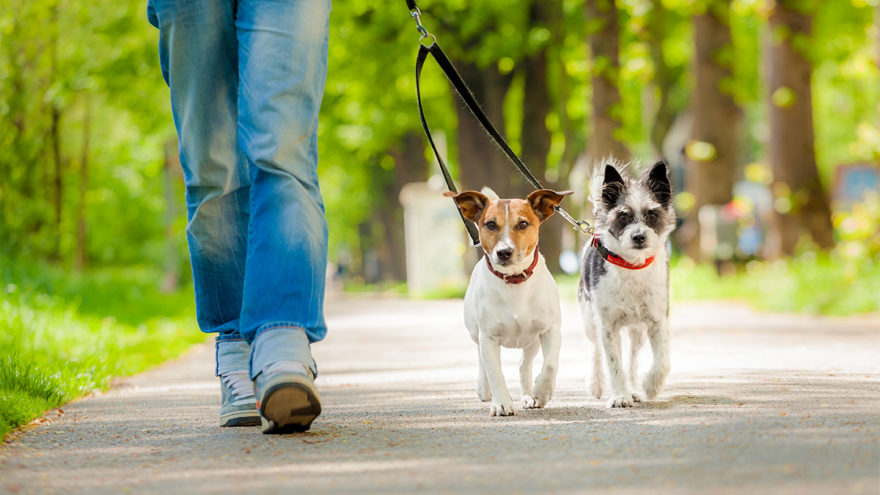Socialization is an important step in helping your dog grow up to be strong and confident. Socialization is a common term used when giving your dog careful, positive exposure to people, other dogs and everyday situations that he may encounter. Special attention should be given during the early stages. If a puppy isn’t given exposure to a variety of stimuli including people and dogs when young, it may not develop into a confident adult. There are many steps that need to be taken for proper socialization. Done incorrectly, it could do more harm than good.
When is the Best Time to Socialize a Dog?
Getting your dog used to being around humans and other animals is a key part of socialization, but there are other factors to consider. The most crucial time for socialization is the first weeks of a puppy’s life when they are being exposed to all sorts of sounds, smells, sights, and other sensations that will inform how they see the world. Dogs that miss out on these experiences as puppies can become apprehensive of the unfamiliar, which could lead to fear and anxiety, and even aggression.
Types of Dog Socialization
Some of the things you should focus on when socializing a dog include the following:
- Constantly introduce your dog to new people – Dogs will only learn to be social when they are constantly in contact with people. This goes for older dogs too. Keeping your dog socialized to humans requires constant reinforcement.
- Socializing a dog to babies and young children, as well as older people/seniors, is something you may want to consider. Dogs need to be more gentle around them and teaching them this early is a smart move.
- Keep introducing your dog to other animals – There are lots of ways to socialize your dog to other animals, especially other dogs. Take them to a dog play group, a dog park, or just a regular old walk in an area with other dogs to accomplish this. Michael’s Pack offers dog socialization classes where your dog can interact with other dogs learning the same things!
- Vary your walk routine – Don’t take the same route every day. Let your dog experience different places and environments.
- Let your dog be alone – You don’t necessarily need to leave your dog home all alone for extended periods of time, but simply using a baby gate or crate so they aren’t constantly shadowing you will make them more self-reliant and confident on their own.
- Introduce them to things that might scare or alarm them – Things like vacuum cleaners or alarms can be loud and scary to a dog. Introducing them early in a dog’s life will teach them that they don’t need to be afraid of these sounds.
Signs of an Under Socialized Dog
A dog’s general behavior relies heavily on two main factors: genetics and experience. However, the following are behaviors that the vast majority of poorly-socialized dogs tend to display:
- General fearfulness or aggression around people and dogs
- Over excitation or defensive reactivity towards stressful situations
- Nervousness or shyness when around other people or on a walk
- Stressed body language when approached by another individual or animal
- Avoidance behaviors during the sounding of unexpected sounds
- Fear and lack of interest as far as embarking on new adventures
Dog Socialization With the Help of Michael’s Pack
Michael’s Pack offers a variety of dog training services for dogs of all ages. If you are looking to socialize your dog, we offer dog socialization classes at home in New Jersey and New York and at our facility in Mineola, New York where your pup can be around other dogs and the professional Michael’s Pack trainers. Contact us today to learn more about our services.

